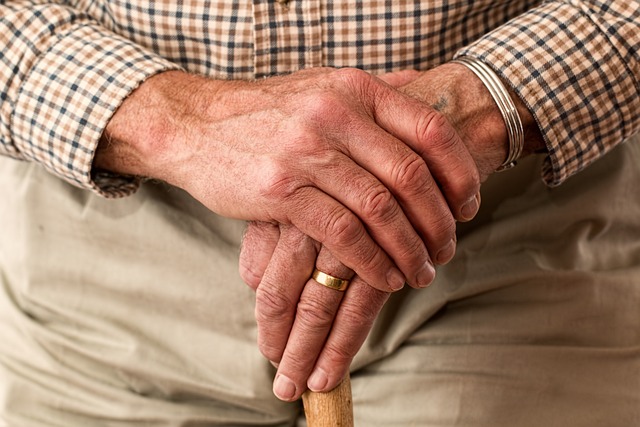Elderly Companion Services are specialized care programs designed to enhance the lives of senior citizens by providing consistent social interaction and personalized engagement tailored to individual interests. These services not only offer emotional support to combat loneliness but also contribute significantly to the mental and physical well-being of older adults, aiding in preserving cognitive function and promoting independence. They facilitate activities such as storytelling and games, assist with daily tasks, and use technology to adapt and improve interactions. By ensuring seniors remain active and engaged within their communities, these services foster a sense of purpose and belonging, offering peace of mind for families and catering to the diverse needs of an aging population. These companion services are integral in providing compassionate, tailored care that aligns with the changing needs and preferences of elderly individuals, making them a key component of eldercare and a vital resource for maintaining quality of life at home.
As we age, the importance of companionship within the comfort of one’s own home becomes increasingly pivotal. This article delves into the multifaceted role of elderly companion services in enriching the lives of seniors by providing meaningful connections and support. We explore how these services are customized to meet individual preferences, the benefits they offer for both physical and mental health, and the critical aspects of selecting a provider that aligns with your loved one’s needs. The evolution of elderly companion services through technological advancements, the significance of cultural sensitivity, and the professional standards upheld by providers are also examined. Additionally, we navigate the legal landscape, offer insights into financing options, and conclude with an outlook on future trends in this compassionate sector. Join us as we shed light on how elderly companion services can make a profound difference in the daily lives of seniors.
- Understanding the Importance of Companionship for Seniors at Home
- The Role of Elderly Companion Services in Modern Society
- Assessing the Needs: Tailoring Companion Services to Individual Senior Preferences
- Building Relationships: How Companion Services Foster Meaningful Connections
- The Multifaceted Benefits of Elderly Companion Services for Physical and Mental Health
Understanding the Importance of Companionship for Seniors at Home

As individuals age, maintaining a sense of connection and companionship becomes increasingly significant for their well-being. The elderly companion services represent a vital resource for seniors who wish to retain their independence while benefiting from regular social interaction. These services are designed to provide meaningful engagement through activities tailored to the senior’s interests, fostering an environment where emotional support is as natural as shared laughter over a favorite game or story. This companionship not only enhances the quality of life for seniors but also plays a crucial role in their overall health and cognitive function. The presence of a consistent companion can alleviate feelings of loneliness and isolation, which are known to have adverse effects on both mental and physical health. By offering personalized attention and support, elderly companion services help bridge the social gaps that may arise as a result of diminished mobility or the loss of peers, ensuring that seniors remain integral parts of their communities with a sense of purpose and belonging.
The Role of Elderly Companion Services in Modern Society

As populations age globally, the role of elderly companion services within modern society has become increasingly significant. These services are designed to provide seniors with meaningful social interactions and emotional support tailored to their individual needs. By offering a range of activities from conversation and shared hobbies to assistance with daily tasks, these services help mitigate feelings of loneliness and isolation, which are common challenges faced by many elderly individuals. The personalized care provided by companion service professionals ensures that seniors can maintain a level of independence while receiving the companionship they need to thrive in their golden years. Moreover, these services not only enhance the quality of life for the elderly but also alleviate the concerns of their families and loved ones who may be unable to provide constant care. With advancements in technology, companion services have also become more flexible and accessible, allowing for a seamless integration of human companionship with the convenience of digital solutions. This adaptability ensures that elderly companion services remain a vital component of the social support system for seniors, adapting to their evolving needs and preferences.
Assessing the Needs: Tailoring Companion Services to Individual Senior Preferences

When considering elderly companion services, it’s crucial to conduct a thorough assessment of each senior’s unique needs and preferences. A tailored approach ensures that the companionship provided aligns with their interests, lifestyle, and emotional requirements. For instance, some seniors may thrive with interactive activities that engage their cognitive abilities, while others might benefit from quieter, more one-on-one interactions. Professional companion services can offer a range of options, from social engagement to assistance with daily tasks, all designed to enhance the senior’s quality of life. These services often include companions who are carefully matched with seniors based on shared interests or complementary personalities, fostering meaningful and enjoyable relationships. By focusing on individual preferences, these companion services can effectively mitigate feelings of loneliness and isolation, which are significant concerns for many older adults. This personalized attention not only improves their emotional well-being but also supports their overall health and independence at home.
Building Relationships: How Companion Services Foster Meaningful Connections

Elderly companion services are designed to provide seniors with a consistent and supportive presence within their own homes, fostering meaningful connections that can significantly enhance their quality of life. These services go beyond mere companionship; they involve building relationships based on mutual respect, understanding, and shared activities tailored to the individual’s interests and abilities. A dedicated companion not only offers companionship but also engages in daily routines, encourages social interaction, and often becomes a trusted ally in navigating the challenges of aging. This human connection can lead to improved mental health, as conversations and interactions provide cognitive stimulation and opportunities for emotional expression. Moreover, companion services facilitate a sense of belonging and community, which is crucial for seniors who may be at risk of isolation due to limited mobility or the loss of peers. The companionship provided through these services is a vital aspect of eldercare, contributing to a more fulfilling and enriched lifestyle for older adults in the comfort of their own homes.
The Multifaceted Benefits of Elderly Companion Services for Physical and Mental Health

Elderly companion services offer a multitude of benefits that extend beyond mere companionship for seniors, addressing both their physical and mental well-being. Professionals providing elderly companion services are trained to assist with daily tasks such as meal preparation, medication management, and light housekeeping, which contribute to maintaining an individual’s independence and safety within their own home. This support not only enhances the senior’s quality of life but also reduces the risk of accidents and complications that can arise from neglect or physical limitations.
Moreover, these services provide valuable social interaction and emotional support, mitigating feelings of loneliness and isolation often experienced by older adults. The consistent presence of a companion can lead to improved mental health outcomes, including reduced stress levels, lower rates of depression, and a better overall mood. Engaging in meaningful conversations, shared activities, and companionship help maintain cognitive function and can even delay the onset of dementia-related conditions. Through personalized care and attention, elderly companion services are instrumental in promoting holistic health for seniors, ensuring they receive the dignified and fulfilling lifestyle they deserve.
Seniors benefit significantly from the companionship provided by elderly companion services, which play a pivotal role in modern society. These tailored support systems not only cater to individual preferences but also foster meaningful connections that enrich both the seniors’ lives and their communities. The multifaceted advantages of such services extend beyond social interaction, promoting physical and mental well-being for older adults. As we recognize the importance of companionship in later life, it is clear that elderly companion services are not just a luxury but an integral aspect of holistic senior care, ensuring that seniors receive the dignity, respect, and joyful engagement they deserve in the comfort of their own homes.
